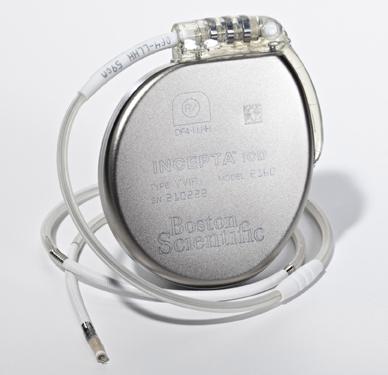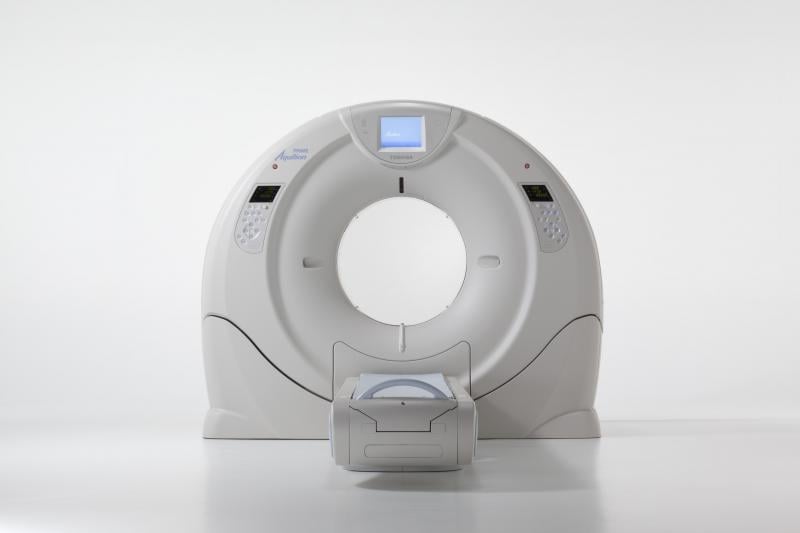July 31, 2012 — Bracco Diagnostics Inc., the U.S.-based company of the Bracco Group, announced that the U.S. Food and Drug Administration (FDA) has approved the use of MultiHance (gadobenate dimeglumine) injection, 529 mg/mL, in magnetic resonance angiography (MRA) to evaluate adults with known or suspected renal or aorto-ilio-femoral occlusive vascular disease.
July 31, 2012 — Boston Scientific Corp. has received CE mark approval for use of its Ingenio and Advantio pacemakers in patients in need of a magnetic resonance image (MRI).

In the coming years, the continued growth and aging of our population will both increase the demand for treatment with implantable cardiac rhythm devices and stretch our ability to pay for care. Toward solving this, we must continue to improve clinical quality not just to provide a better future for patients, but to control costs so that we are able to meet the increased demand.
Cardiac PET/CT represents a major advancement in cardiovascular diagnostics, offering significant clinical and ...
July 31, 2012 – Diagnostic and Interventional Cardiology (DAIC) has applied for business publication membership in BPA Worldwide, which will track DAIC's circulation. The tracking includes business/distribution, demographics and geographic coverage. The magazine will have 12 months to complete its initial circulation audit.
July 31, 2012 — Siemens Healthcare announced that the Magnetom Spectra 3.0T magnetic resonance imaging (MRI) system has received clearance from the U.S. Food and Drug Administration (FDA).
GE Healthcare offers a virtual video tour of the London 2012 Olympic Village Polyclinic. This is the first time viewers have been able to see inside an Olympic clinic and learn more about the broad range of medical imaging technologies in use, provided by GE Healthcare.
SPONSORED CONTENT — Studycast is a comprehensive imaging workflow system that allows healthcare professionals to work ...
July 30, 2012 — Emerge Clinical Solutions, a creator of clinical decision support software, announced nuclear myocardial perfusion imaging (MPI) appropriateness update 3.1 that allows for diagnosis of both symptomatic and asymptomatic conditions.

Trends and new technology for cardiac computed tomography angiography (CCTA) were highlighted during the 2012 Society of Cardiovascular CT (SCCT) annual scientific meeting in July in Baltimore, Md. Major topics included the development of fractional flow reserve (FFR)-CT imaging, perfusion imaging, imaging for transcatheter aortic valve replacement (TAVR) and analysis software advancements.

Computed tomography (CT) vendors highlighted several recent imporvements to their imaging systems during the 2012 Society of Cardiovascular CT annual scientific meeting.
Providing exceptional cardiovascular care for patients to achieve the best possible outcomes is the number one goal for ...
July 27, 2012 — University of Michigan heart researchers are shedding light on a safer method for steadying an abnormal heart rhythm that prevents collateral damage to healthy cells.
July 27, 2012 — Adding computed tomography (CT) scans to standard screening procedures may help emergency room staff more rapidly determine which patients complaining of chest pain are having a heart attack or may soon have a heart attack, and which patients can be safely discharged, according to a study funded by the National Heart, Lung and Blood Institute (NHLBI), part of the National Institutes of Health.

Percutaneous coronary interventional (PCI) procedures are performed throughout hundreds of US institutions every day. With the increasing frequency of these procedures being performed comes an associated rise in certain companion risks, namely access site complications. Implementation of a dedicated access site surveillance and educational program, in tandem with pre-existent strategies to reduce access site complications, can reduce the overall incidence of untoward femoral-access related bleeding events.
Cardiac positron emission tomography (PET) is growing in popularity among cardiologists because it provides the ability ...
July 27, 2012 — With a great deal of practical, clinical feedback from a broad demographic of facilities with differing processes and needs, ScImage has comprehensively improved the workflow and the consequent efficiency of its PicomSRI structured reporting platform.
July 27, 2012 — Major safety fears over supraventricular tachycardia (SVT) medications are threatening many elderly patients, and even encouraging some to opt for surgery, claims a new report by healthcare experts GlobalData.
July 27, 2012 — Cook Medical announced general availability of the Aprima Access nonvascular introducer set, the first product in the Aprima drainage portfolio. It is a nonvascular access set used for single-puncture percutaneous access to facilitate placement of a working wire guide for interventional radiology (IR) procedures.


 July 31, 2012
July 31, 2012










